Michigan Rental Agreement

A Michigan rental agreement is a legal contract between a landlord overseeing a rental property and a tenant who wishes to use it. Michigan landlord-tenant law governs these agreements and rental terms must be within the limits allowed by law.
Michigan Rental Agreement Types
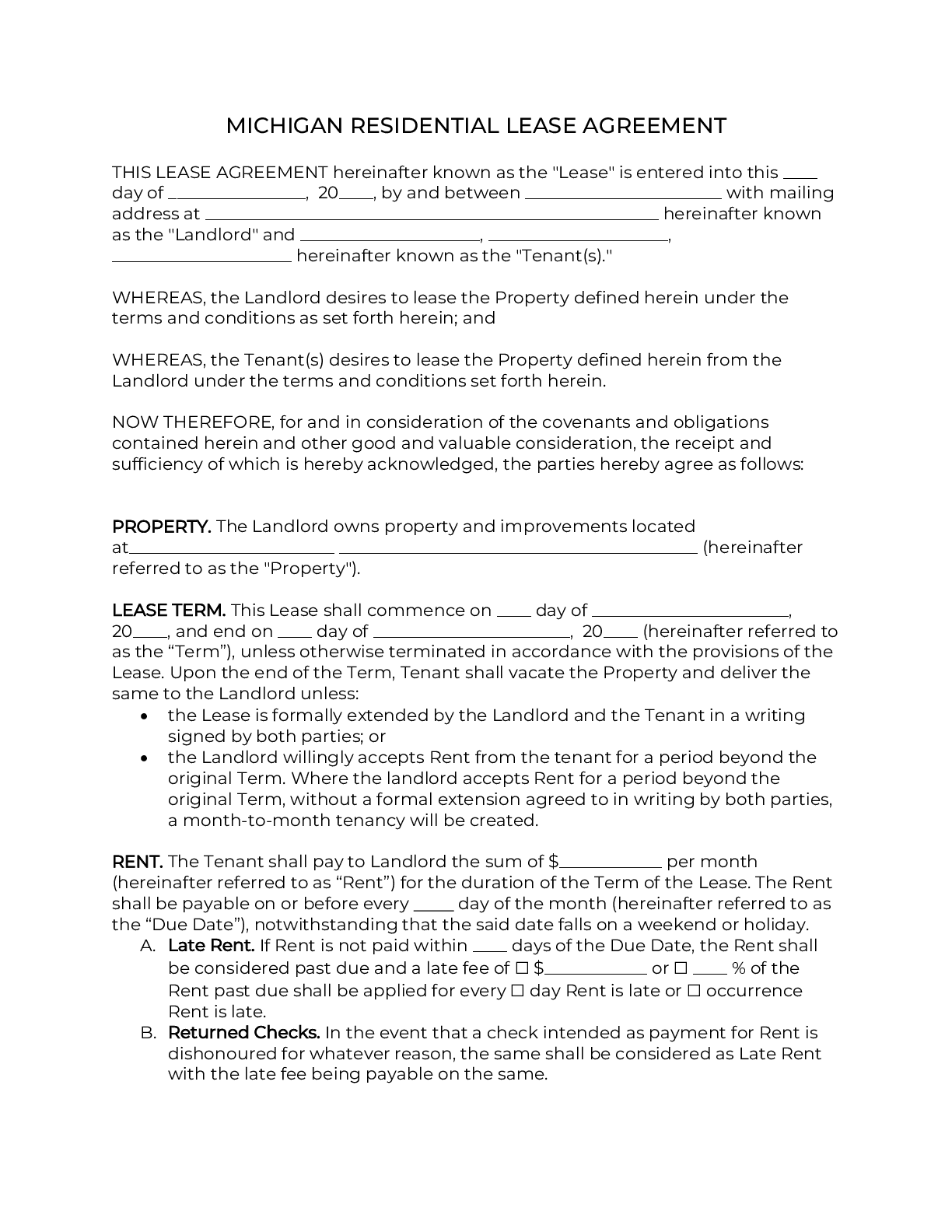
A Michigan residential lease agreement is a legal contract for a tenant to rent a residential property from a landlord, subject to terms and conditions agreed by all parties.

A Michigan month-to-month lease agreement is a contract where a tenant rents property from a landlord. The full rental term is one month, renewable on a month-to-month basis.
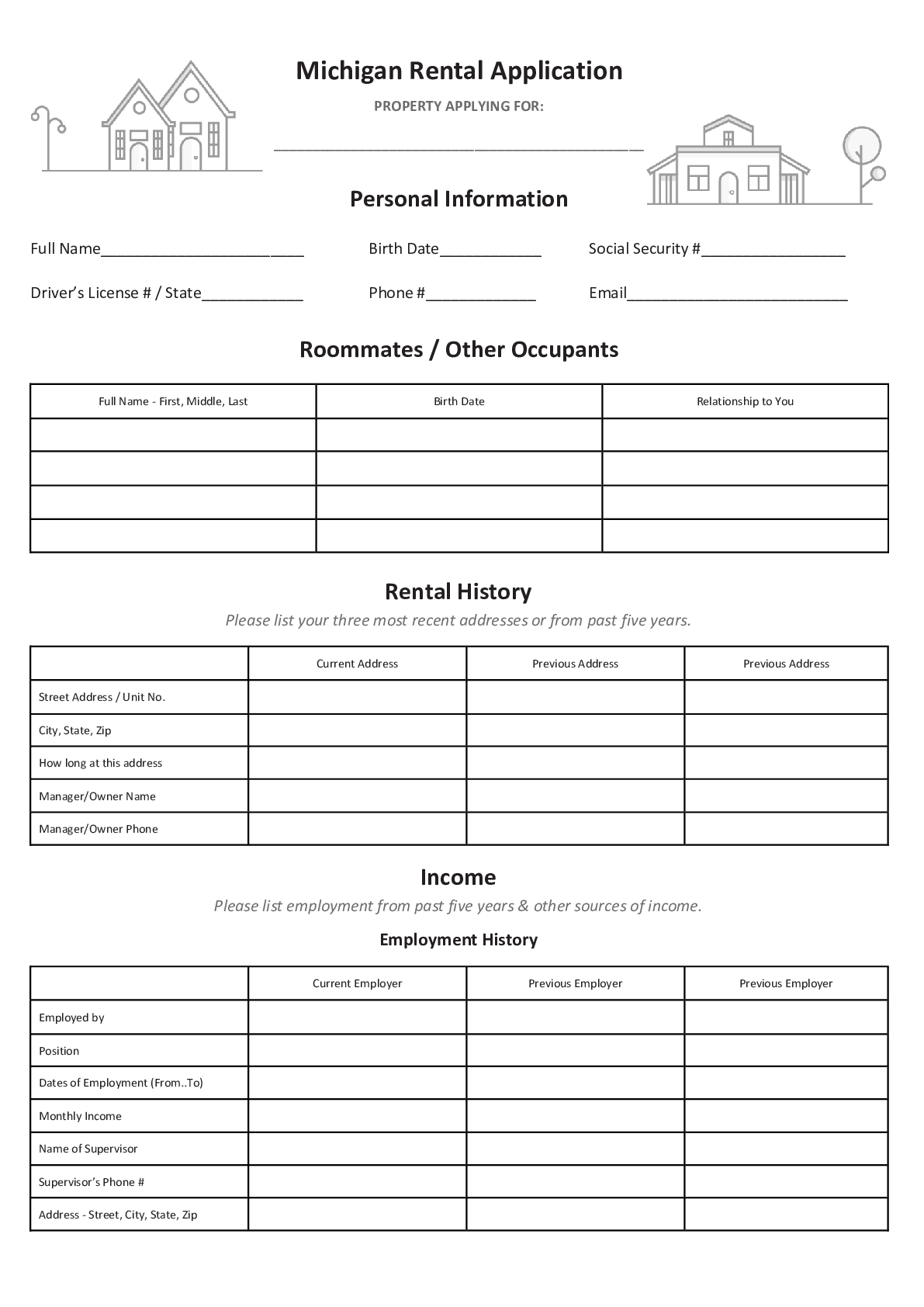
Michigan landlords may use a rental application form to screen prospective tenants. A rental application collects information relating to finances, rental history, and past evictions.
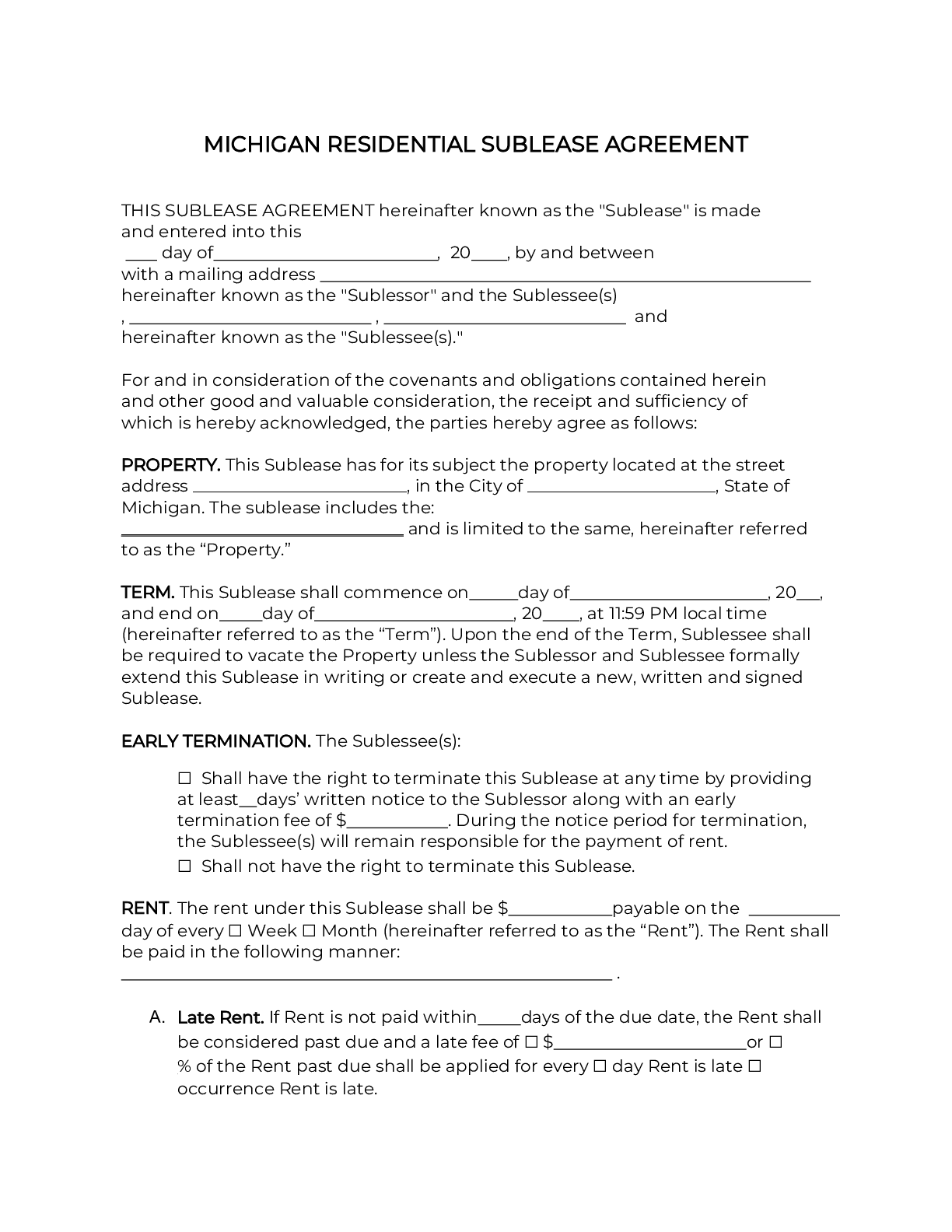
A Michigan sublease agreement is a legal contract where a tenant rents property to a new tenant, usually with the landlord’s permission.
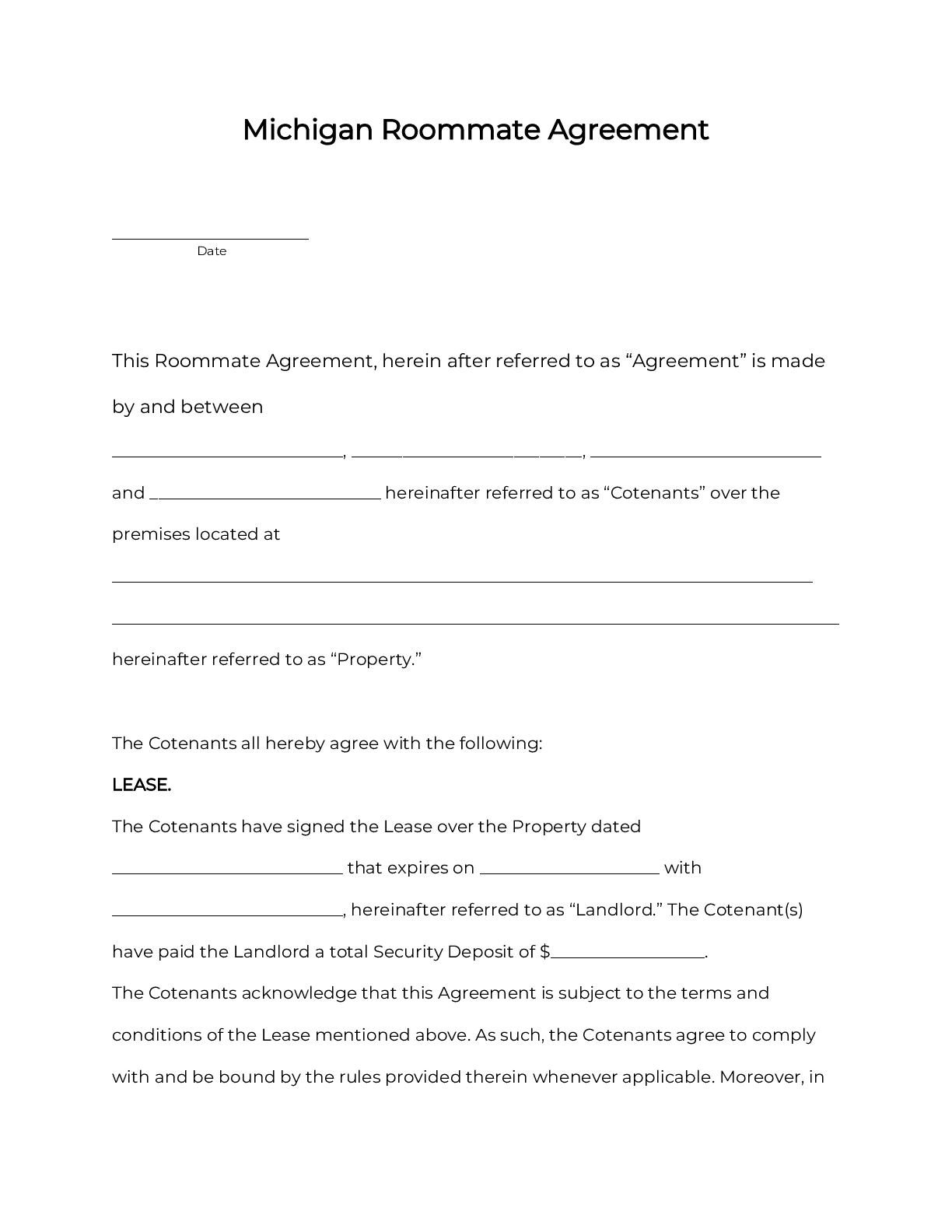
A Michigan roommate agreement is a legal contract between two or more people who share a rental property according to rules they set. This agreement binds the co-tenants living together, and doesn’t include the landlord.
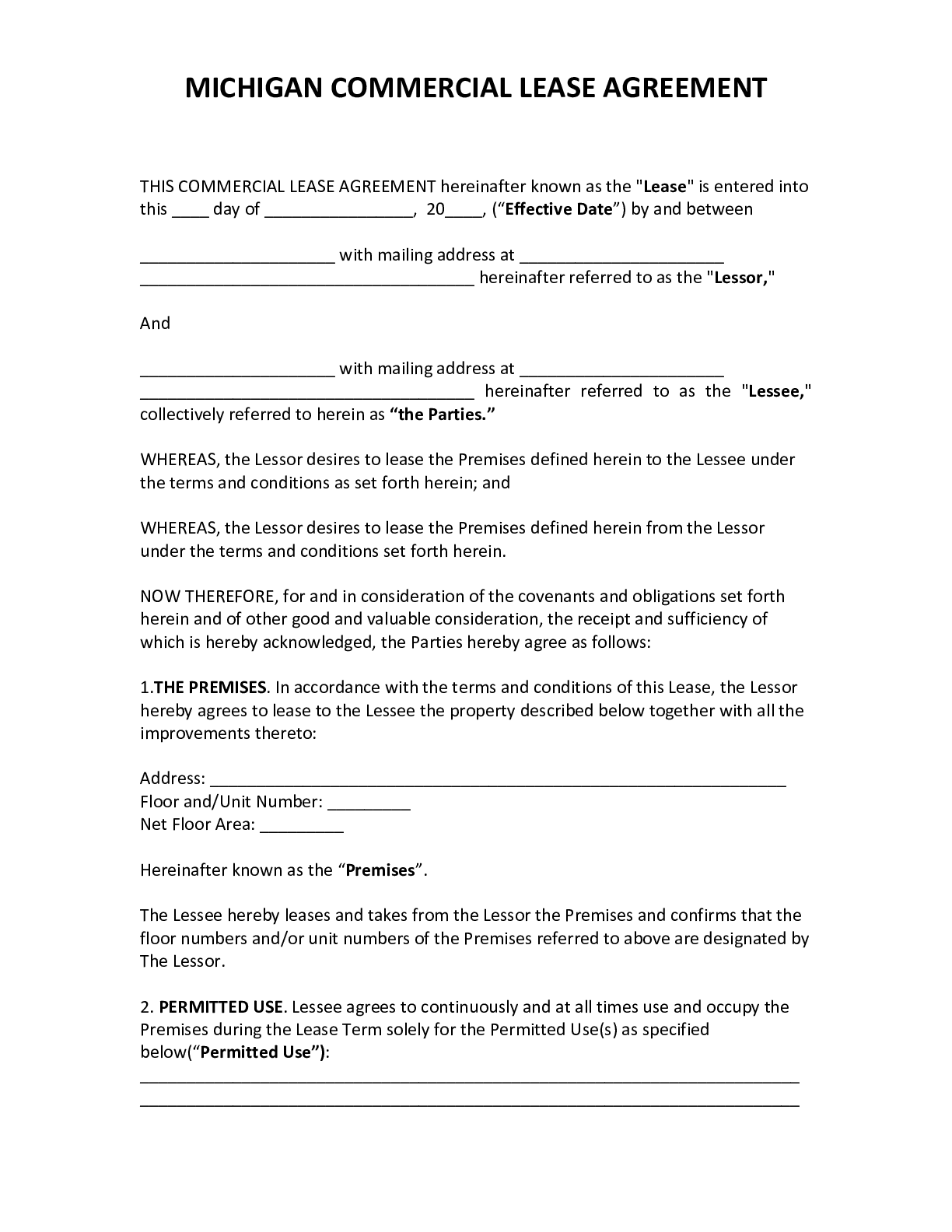 Commercial Lease Agreement" />
Commercial Lease Agreement" />
A Michigan commercial lease agreement is a legal contract arranging the rental of commercial space between a landlord and a business.
Michigan Required Residential Lease Disclosures
- Landlord’s Name and Address(required for all leases) – Michigan leases must contain the name and address of the landlord or authorized agent. This enables smooth communication of any important legal notice.
- Truth in Renting Act Disclosure(required for all leases) – Michigan requires a specific notice in all rental agreements that recommends the renter seek legal consultation if they have questions about the lease.
- Domestic Violence Protection Disclosure(required for all leases) – Michigan leases must include a disclosure on domestic violence protections, noting that victims have a right to end the lease early if needed.
- Move-In Checklist(required for some leases) – Michigan landlords collecting a security deposit must provide a move-in checklist that must be filled out within 7 days of move-in. This lets tenants inventory any existing damages to ensure accurate deductions later on. Landlords must also show which damages were charged to the last tenant.
- Late or Returned Check Fees(required for some leases) – Michigan leases must disclose the presence and amount of late or returned check fees.
- Lead Based Paint Disclosure(required for some leases) – For any property built before 1978, federal law requires that a Michigan residential lease must contain a lead-based paint disclosure with an EPA informational pamphlet, plus notice of any lead hazards on the property.
To learn more about required disclosures in Michigan, click here.
Some Michigan cities, like Detroit, may require additional disclosures. Local laws apply in addition to state laws.
Michigan Landlord Tenant Laws
- Warranty of Habitability – Michigan landlords must provide certain features essential to basic health and safety. This includes things like heat, plumbing, electricity, and sound structural elements. Landlords must repair any issues within a reasonable time after proper notice from the tenant. Failure to repair lets a tenant sue the landlord, terminate the lease, withhold rent into court escrow, or repair and deduct from the rent.
- Evictions – Michigan allows tenants to be evicted from their units if they fail to pay rent (7-day notice), commit an illegal act (24-hour notice), or violate the lease (30-day notice). The nature of the offense is the major determinant of how long evictions take in Michigan.
- Security Deposits – Michigan caps security deposits at a maximum of 1.5 times the value of rent. Upon lease termination, landlords have 30 days to return any unused portion of a security deposit to the tenant.
- Lease Termination – Michigan lets tenants terminate a month-to-month lease with 30 days of advance notice. A fixed-term lease can’t be terminated early without active military duty, landlord harassment, uninhabitable property, domestic abuse, or an agreement between the landlord and tenant.
- Rent Increases and Fees – Michigan doesn’t set a cap on the amount or frequency of a rent increase, nor do landlords have to provide any particular amount of advance notice. Rent increases cannot occur during the lease term. There are likewise no regulations on fees, except for returned check fees. These are capped at $25 (paid within 7 days) or $30 (paid within 30 days).
- Landlord Entry – Michigan landlords may enter rental property for purposes reasonably related to the tenancy, like maintenance and inspections. There are no specific state laws about landlord entry, so if there isn’t an entry policy in the lease, advance notice and time of entry are subject to “reasonable” expectations.
- Settling Legal Disputes – Michigan allows landlord-tenant disputes in its small claims courts, as long as the amount in controversy is under $5,000. Small claims is not allowed to hear eviction cases. Most landlord-tenant issues have a six-year statute of limitations in Michigan.
To learn more about landlord tenant laws in Michigan, click here.








 Commercial Lease Agreement" />
Commercial Lease Agreement" />